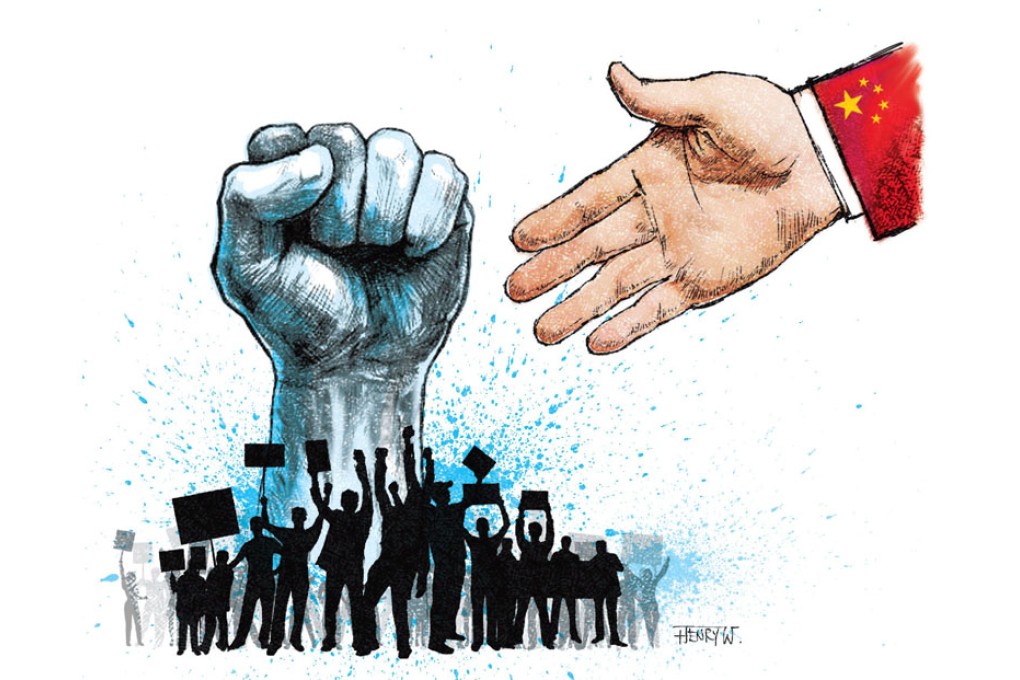China can't ignore workers' well-being if it wants to avert strikes
Jonathan Sullivan and Samantha Hoffman say workers' strikes such as the one affecting Yue Yuen will continue to plague China unless officials and business leaders change their attitude of 'growth at any cost'

One of the world's largest footwear manufacturers, Yue Yuen, is in many ways typical. A Taiwanese firm listed in Hong Kong, it has numerous factories based in the southern China manufacturing belt, making shoes emblazoned with stripes and swooshes for sale around the world. In recent weeks, it has also faced an increasingly typical problem for companies located in China - an aggrieved and angry workforce.
In Yue Yuen's case, demands for proper treatment shut down operations across two provinces.
The first action, on April 14, saw employees at a factory in Dongguan walk out over the non-payment of social insurance, following the discovery of years of missing pension contributions. It escalated into a full-blown strike involving thousands of workers across several factories in Guangdong supplying shoes for Adidas, Nike and Timberland. On April 18, the strike spread to the company's factories in neighbouring Jiangxi .
Similar protests in recent months affecting multinationals like IBM and Walmart demonstrate the fissile atmosphere on the shop floor of the world's factory. China's manufacturing centres have been hard hit by the global economic crisis and continuing malaise. Migrants who flocked to coastal provinces on the promise of improved opportunities are now dealing with the loss of jobs and upward mobility.
Across the country, inequality is spiralling and there is a yawning gap between employment laws and workers' rights and the actual behaviour of the state and businesses. With improved internet accessibility, particularly the mobile internet that allows the poor to get online, and the admirable work of civic groups, rights lawyers and bloggers, there is much greater awareness of workers' rights and the determination to have them recognised.
The ubiquity of popular protest in China, on the ground and in cyberspace, is one of the most remarkable developments of the past decade. Nationwide, there have been clashes over pensions, lay-offs, corruption, land seizures, taxes and pollution. And direct action is no longer merely a last resort for the rural poor: "Not-in-my-backyard" protests over plans to build polluting chemical factories have recently brought the middle classes onto the streets of the bigger cities in huge numbers.